A couple of months ago, we gave you a 101 of sorts on reverse mortgage loans. In this article, we explained what reverse loans are, who’s eligible for them, and why you might consider one. To recap, a reverse mortgage loan is mortgage loan in which the lender makes payments to the homeowner instead of the other way around. To qualify for a reverse loan, you must be age 62 or older. You also must have significant equity in the home for which you want the reverse loan and the house must be your primary residence. Reverse mortgages can be quite beneficial to people at or near retirement age because they give this population some financial stability they wouldn’t otherwise have. But, unfortunately, with all of this comes a few popular myths about reverse mortgage loans. Up next, we’ll tell you about three of them.
Myth #1: You’ll Be Forced Out Of Your Home
This simply isn’t true — as long as you continue to meet the basic requirements noted above, plus a couple of others. One requirement we didn’t previously mention is that you must make monthly property tax and homeowners insurance payments. In addition, you must maintain the home according to Federal Housing Administration (FHA) standards (more on these here). The bottom line, though, is that you’re not going to be evicted or otherwise forced out of your home unless you stop doing the things you’ve been doing to be reverse mortgage-eligible.
Myth #2: The Lender Will Own Your Home
As widely circulated as this myth tends to be, it is factually incorrect. At Fairway of the Carolinas, we aren’t interested in owning homes. It’s just not what we do. As a homeowner with a reverse mortgage, you keep the title to the home in your name. In this regard, it’s no different than any other type of home loan program we offer. The only thing that would change your homeowner status would be if you didn’t satisfy the aforementioned obligations. And there’s no reason you shouldn’t be able to satisfy them if you’re saving money each month on mortgage payments by virtue of having a reverse mortgage.
Myth #3: You Must Pay Numerous Out-Of-Pocket Expenses At Closing
Actually, no. Most often, you can weave the majority of lender closing costs and fees into the reverse mortgage loan rather than having to pay upfront. These expenses are similar to those that accompany the closing on a traditional mortgage. One fee unique to FHA-insured reverse mortgages is a Mortgage Insurance Premium, which you pay to a government mortgage insurance fund. However, this premium — which ensures you will never owe more than your home is worth — can likewise be woven into the loan, so it doesn’t have to be paid upfront. The only fee you must pay upfront at closing is for what’s known as reverse mortgage counseling. You’ll provide this payment to an independent, third-party counselor, whose job is to ensure you understand all aspects of the loan.
The Last Word
Do you have questions about reverse mortgages? We’re here to answer them — and dispel any other myths about reverse mortgage loans. If you’re 62 or older and believe a reverse mortgage might be right for you, contact us. Our mortgage advisers are ready and eager to help. Or you can click below for a free reverse mortgage evaluation. Our goal is to guide you down a path of greater financial freedom and flexibility. Let’s connect today!






